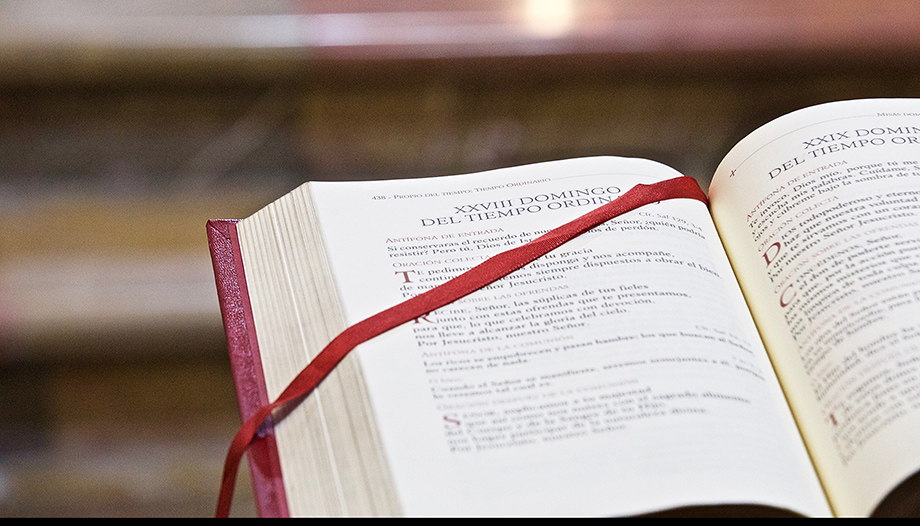When Moses insists on prayer, Joshua defeats Amalek. But if his arms fall down from fatigue, Joshua loses the battle. It is exhausting to keep your arms up for a long time: it is an image of the weariness of prayer. The help of the people who love us, Aaron and Korah for Moses, sustains us: we keep on praying.
Paul writes to Timothy about other aspects of steadfastness: in the faith he has received and in instruction in the Scriptures, the efficacy of which he praises: it serves to teach, convince, correct, educate, mature the man of God and prepare him for every good work. No small thing! Timothy is also encouraged to insist on the proclamation of the word, admonishing, rebuking and exhorting. In any case, what will make his speech effective, even if the chosen moment is not the right one, will be the form: "with all magnanimity." With a big heart, with charity as the underlying criterion, Paul reminds him.
The parable of the widow who insists with the judge is told only by Luke, who introduces it already with the interpretation: the need to pray always, without ever getting tired. The protagonists of the story are the widow, the judge and the adversary. A widow of that time represented the maximum of poverty and fragility. Perhaps the early Christians also felt this way in the face of adversaries. Jesus outlines a total difference between the judge and God. A judge who does not fear God and has no regard for anyone is the worst thing that can happen: obedience to God's command to love and serve one's neighbor does not touch him, nor does respect for human dignity. He moves only because the widow's insistence harms his comfort. Paradoxically, Jesus proposes the same behavior in prayer: to be insistent, to cry out to God day and night, and assures us that God will come at once to do us justice. One may object: if God is so different from the judge, in his fatherhood and mercy, why is it so necessary to cry out to him night and day? And again: the experience of believers is that sometimes God does not seem to intervene or is slow to respond. We can answer that the gift of prayer is, to a large extent, prayer itself, which brings us into communion with God, makes us believe in him, exercises hope and trusting abandonment, leads us to love and be loved by him. Prayer makes us overcome the Amalek that stalks us and tempts us to distrust God and his love, to feel him as an enemy. In overcoming Amalek we are converted and we have the certainty that God comes immediately to our aid, giving us the faith to see the things of life according to his eyes, and to abandon ourselves to his will: in this way God will resolve everything, but in his own way and in his own time.
Homily on the readings for Sunday 29th Sunday
The priest Luis Herrera Campo offers its nanomiliaa small one-minute reflection for these readings.











